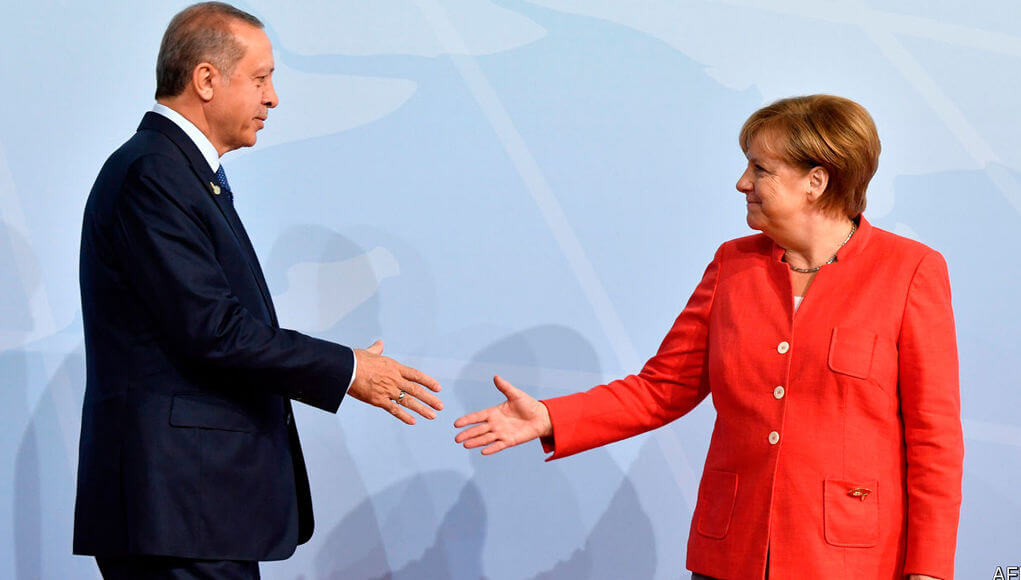Tensions have again reached a climax between Turkey and Greece over a number of traditional conflicts such as the issues of Cyprus and the Aegean, in addition to recent disputes related to maritime influence in the eastern Mediterranean. And Athens had previously tried to nullify the agreement between Turkey and Libya in November 2019 aimed at limiting Turkish control of the eastern Mediterranean region that extends to the Gulf of Antalya. Athena believes that, with the support of France, Egypt, the United Arab Emirates, and the Romanian Cypriots, it can pursue an extremist and unjust policy in all its issues with Turkey, especially its recent dispute over the continental shelf of the Aegean Sea, where the Eastern Mediterranean has emerged as a major platform for renewed competition between Greece and Turkey, reports The Eastern Herald.
https://easternherald.com/featured/expect-war-between-greece-turkey-66170/
Greek military officials allude to the possibility of an outbreak of war, in a sign that their desperate government is preparing to confront Turkey’s latest steps in the region. But previous crises between the two countries taught Athens never to risk a military confrontation with Ankara such as the Cardak / Imia Island crisis in 1996 and the PKK terrorist leader Abdullah Ocalan was forcibly expelled from Greece in 1998. It is clear that Greece, who could not even cope with Turkey’s strength in the 1990s, will escape from fighting the Turks today. Since President Recep Tayyip Erdogan played down the importance of the Greek threats, calling them “empty bullets,” Greek Prime Minister Kyriakos Mitsotakis preferred to reduce tensions. It is useful here to remember that he received a clear message from US President Donald Trump last year during a phone call, that his country would have to fight Turkey alone if it came to that point.
In his last speech at the 2020 Delphi Economic Forum, “Mitsotakis” announced that his government was “open to dialogue” with Turkey on the demarcation of the maritime border. The Greek politician suggested that conflicts between the two countries could be resolved in The Hague, and he warned that all of Europe would respond to Turkey in case of violating Greek sovereignty. In other words, “”Mitsotakis” brought Greece’s hostility to Turkey to a level of escalation of pressure by the European Union. There is no doubt that the representative of Greece in today’s European Union foreign ministers meeting will do his utmost to defend his self-proclaimed interests in the Eastern Mediterranean. If the European Union responds and allows the more aggressive Greece to lead its policy toward Turkey, European long-term strategic interests will be seriously compromised. In light of Washington’s changing global role, weak NATO solidarity, and Britain’s withdrawal from the European Union, the European Union seeks to engage China and Russia.
From this perspective, it will be useful for Germany, which will assume the rotating presidency of the European Union on July 1, to deal with issues related to Turkey, such as the modernization of the customs union and the liberalization of visas and refugees. As for the entrenchment and enforcement of Greece’s hostile policy toward Turkey in the Eastern Mediterranean region, it would feed tensions rather than promote a solution. The European Union also simply lacks the strength to persuade Ankara to cancel its maritime agreement with Libya. German Chancellor Angela Merkel is also strongly seeking, through her assumption of the rotating presidency of the Union for the last time, to reunify the organization along with the Germans pledge to strengthen the unity of Europe, get the Union out of the emerging virus crisis and improve its global position. Therefore, letting the eastern Mediterranean conflicts lead the relations between Turkey and the European Union to a dead end will not serve this purpose.
Turkey’s support for Libya in recent months and its accomplishments in that country have been highlighted by the fact that the Turks will not turn a blind eye to Greece’s unjust and aggressive policy, as they say, in the Aegean and the Eastern Mediterranean. French President Emmanuel Macron’s plan also failed to achieve the desired results when he used Athena as a cannon to strike Turkey in order to further his country’s interests in North Africa.
https://easternherald.com/featured/greece-border-illegal-human-migration-66632/
As the Libyan coup “Haftar” continues to lose power and lose ground, the Russian role in Libya is increasing due to the mistakes of Europeans who have not paid enough attention to the growing Russian footprint in Libya, which poses a more serious threat to the European Union compared to Turkey, which is a NATO ally. Let’s watch if Merkel will indeed be able to persuade Macron and Mitsotakis of the need to strengthen the European Union and revive its relationship with Turkey.














